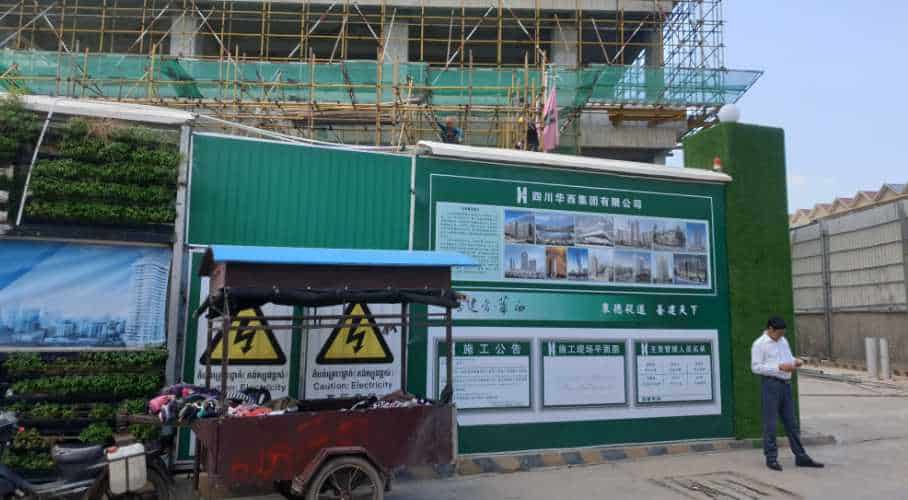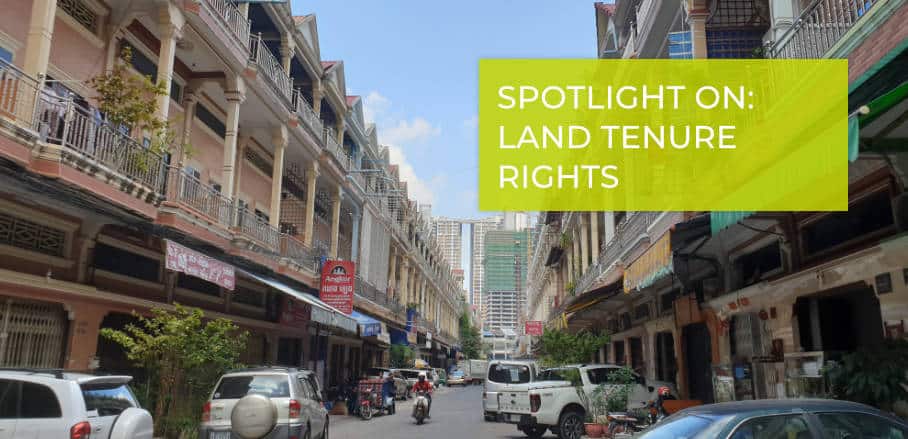Evaluating the Slum Redevelopment Project of Borei Keila
Borei Keila stands out as a unique experiment in land sharing and social housing in Cambodia’s capital Phnom Penh. Dr Paul Rabé provides insights into its origins, the pitfalls in its realisation, and the lessons to be learned.
In May 2003, the Council of Ministers of Cambodia announced four pilot projects to implement a new “social land concession” policy for the urban poor in the capital Phnom Penh. The four pilots were to be “land sharing” projects. The announcement was ground-breaking: up until that moment the Cambodian authorities had used relocation of the urban poor—often forcible, and without proper compensation—as the only instrument to deal with urban poor settlements across the city.
As a mechanism of land conflict resolution, land sharing accommodates development without displacing existing residents, by agreeing to divide (“share”) a plot of disputed land, whereby a landowner can (re)claim the right to build on one portion of the site and land occupants are rehoused on another portion, with a promise of secure tenure on their new plots.
In that spirit, land sharing in Phnom Penh entailed upgrading urban poor settlements in situ instead of relocating the residents to poorly serviced sites far away from the city. Moreover, the in-situ upgrading was to be accompanied by new housing on site, with proper urban services. Perhaps most significant, land sharing implied citizenship: the projects signalled that the government finally acknowledged the possession rights of many of the residents of urban poor settlements.
The Financing Model
The announcement in Phnom Penh was inspired by decades of successful land-sharing projects in neighbouring Thailand. A coalition of housing rights activists in Thailand, Cambodia, and elsewhere in Asia helped to persuade the government to pilot the approach in the Cambodian capital, and the UN agreed to work with the Municipality of Phnom Penh to help realise the land-sharing pilots there.
One aspect of land sharing that was different in Cambodia than in Thailand was the financing model. Instead of small housing loans, which are the predominant model in Thailand, the Cambodian model was based on cross-subsidies from commercial development. The social housing in the newly upgraded sites would be delivered by the private sector in return for a contract to develop the land. This land was contested between the urban poor residents and the landowner, which in all cases was the state.
The Borei Keila Agreement
The largest of the four land-sharing projects in Phnom Penh in the early 2000s was the Borei Keila neighbourhood. It became a model for the privately financed land-sharing approach in Cambodia. In September 2003, the Council of Ministers announced that Phan Imex Construction Company Ltd had been selected as the private partner in the project.
The government accepted a proposal from the company to divide the 4.6-hectare land concession into two parts: “community buildings” to re-house the existing residents of Borei Keila would be constructed on 2 hectares of the concession, while the remaining 2.6 hectares of the concession would be granted to the company for commercial development. The rest of the Borei Keila land area, amounting to 9.52 hectares, would revert to the Ministry of Education, Youth and Sports. No public bidding process to select the developer for the Borei Keila project was ever held.

New commercial development on the Borei Keila site in 2019 © Paul Rabé
What Went Wrong
What happened next in Borei Keila illustrates the dangers of organising a land-sharing scheme in the absence of impartial intermediaries and oversight and in the midst of an affordable housing crisis in the city. The basic principles of land “sharing” were challenged on at least three levels.
First, there was no proper consultation with the residents, about the nature of the agreement and the building and apartment designs, although Borei Keila residents who arrived before 2001 enjoyed possession rights on site according to the Cambodian Land Law.
A second problem was the list of community names. Prior to the land-sharing agreement, a mixed committee of community leaders and civil society organisations established that there were 1776 eligible households living in Borei Keila. After the contract with the company, however, the population ballooned to well over 2300 families as outsiders moved in to get their names on the list for the “free” replacement housing.
The abuses with the community names were perpetrated by all parties involved. Ordinary residents with names on the list rented out houses and plots of land to newcomers or bought the names of other existing families in the hope of claiming several community names and therefore several future apartments. Community leaders were also known to sell names on the list. Meanwhile, the developer paid residents thousands of dollars to leave the community before they could even move into the new apartments, presumably because the empty apartments in the community buildings could then be sold to outside buyers for higher sums of money.
A third and major problem concerned the construction of the community buildings themselves. Even though the developer was contracted to build ten buildings to re-house Borei Keila residents, eventually only eight buildings materialised, with the company claiming financial problems. The breach of contract left hundreds of families who were supposed to move into the last two buildings in an extended period of limbo, during which time they were stranded in temporary shelters on site and eventually forcibly evicted in 2012 to make way for commercial development. A majority of those displaced eventually accepted cash compensation. Two groups of beneficiaries held out for higher compensation and engaged in years of protests, but as the years went by, these protests slowly fizzled, and the holdouts also accepted compensation and/or relocation under various forms of duress.
Conclusions and Lessons Learnt
Borei Keila stands out as a unique social housing experiment in the history of Phnom Penh. It was the only one of the four original social land concession pilots in Phnom Penh where urban poor residents were offered replacement housing on site, in the city centre. It remains the only land-sharing project to be realised in Cambodia to date.
But the project’s objectives and the core principle of benefit “sharing” were severely compromised by informal speculative activity on a large scale. Moreover, from start to finish there was a lack of transparency and a great imbalance in power relations, with the process set up to favour the private company, the local authorities and the original community leaders.[1]Talocci, G., & Boano, C. (2018). The de-politicisation of housing policies: the case of Borei Keila land sharing in Phnom Penh, Cambodia. International Journal of Housing Policy, 18(2), 290-311. The interests and needs of the original Borei Keila residents were systematically marginalised, and dissent by the few protesters who dared to oppose the process was violently put down. This is not to deny, however, that a sizeable number of ordinary residents of Borei Keila also benefited from land speculation and abuse of the land sharing rules, such as the buying and selling of community names, and through their role as intermediaries of the developers.
Borei Keila offers many lessons for land and housing policy for the urban poor. The land-sharing project objectives were laudable and the financing model innovative. But short of collective tenure measures, perhaps little will stop individual households from cashing in and selling out. Moreover, active intermediary organisations need to help poor communities negotiate with local authorities and developers for more optimal project design outcomes.
- Evaluating the Slum Redevelopment Project of Borei Keila - 9. March 2021
